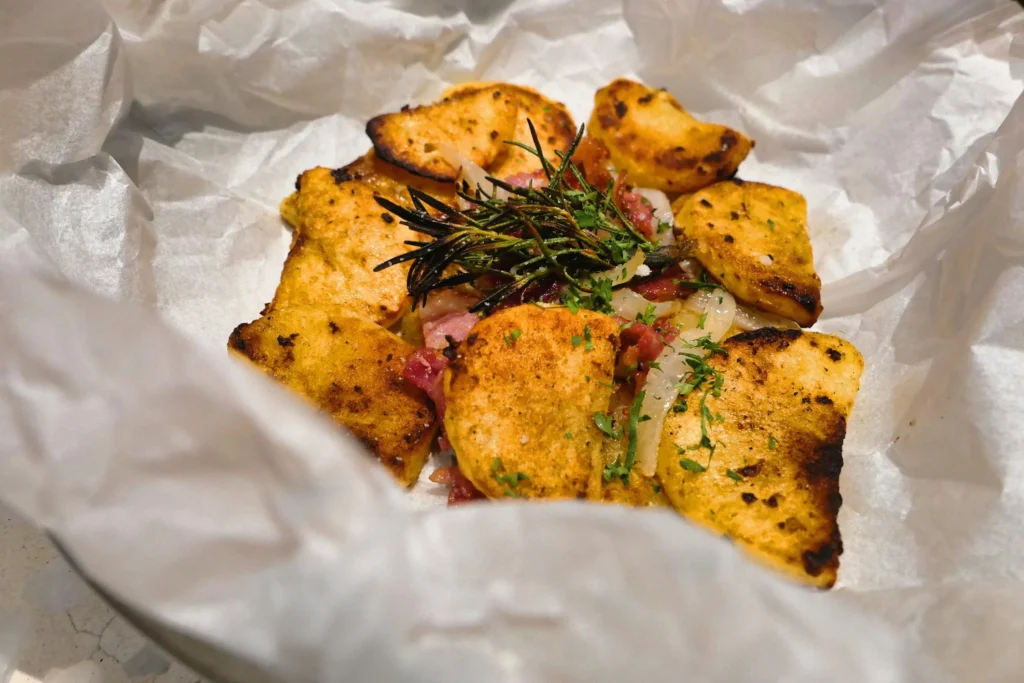Aluminum foil is a versatile kitchen tool, often used for baking meat, fish, and vegetables. However, there are certain foods that should not be baked in foil to avoid undesirable textures, flavors, or chemical reactions. Here are key tips to ensure your dishes turn out perfect.
Potatoes
Baking potatoes in foil can result in a watery texture rather than the desired crispy, golden exterior. The natural juices released during cooking accumulate inside the foil, steaming the potatoes instead of roasting them. For a crispier result, bake potatoes directly on a baking sheet or rack.
Tomatoes and Citrus
When baking dishes that include tomatoes, lemons, or other citrus fruits, avoid wrapping them in foil. The acidity of these fruits reacts with aluminum, which can give the food an unpleasant metallic taste. Instead, use parchment paper or bake them uncovered in a non-reactive dish.
Cabbage
Foil is not suitable for baking cabbage, as the juices it releases during cooking will make the cabbage soggy rather than roasted. Additionally, the cabbage may take on a metallic aftertaste, similar to acidic foods. For better results, roast cabbage on a baking sheet or in a glass or ceramic dish.
Spices
Spices like paprika, chili powder, and cumin can react with aluminum at high temperatures, altering the flavor of the dish. These spices are better used in recipes where direct contact with foil can be avoided, such as marinades or rubs applied to foods cooked on parchment paper or in non-stick cookware.
Avoiding foil for certain foods can enhance both the taste and texture of your dishes while preventing unwanted flavors caused by chemical reactions. Opt for alternatives like parchment paper, glass, or ceramic baking dishes when preparing these items. By following these simple tips, you’ll save time, preserve the quality of your meals, and enjoy better culinary results.

